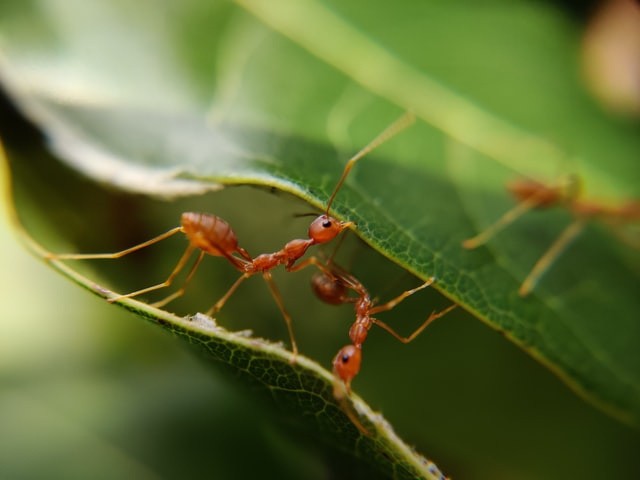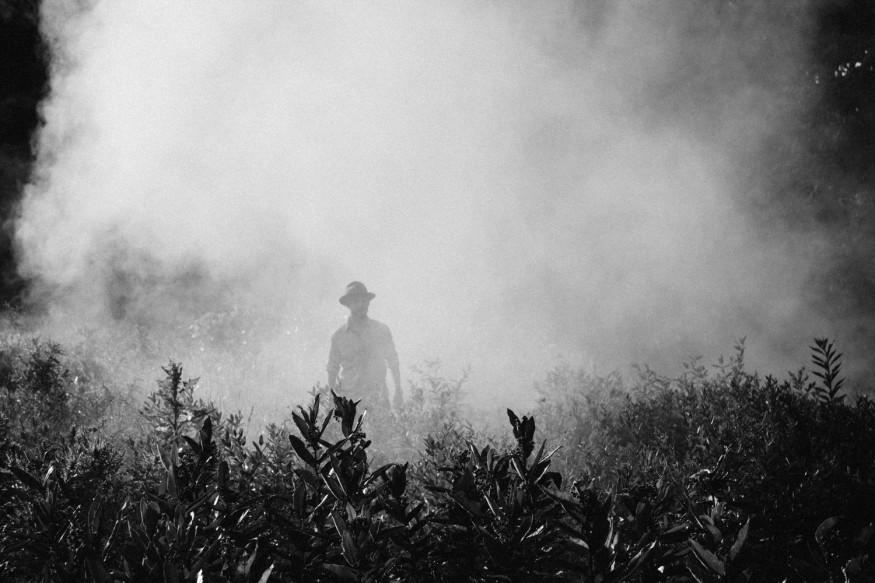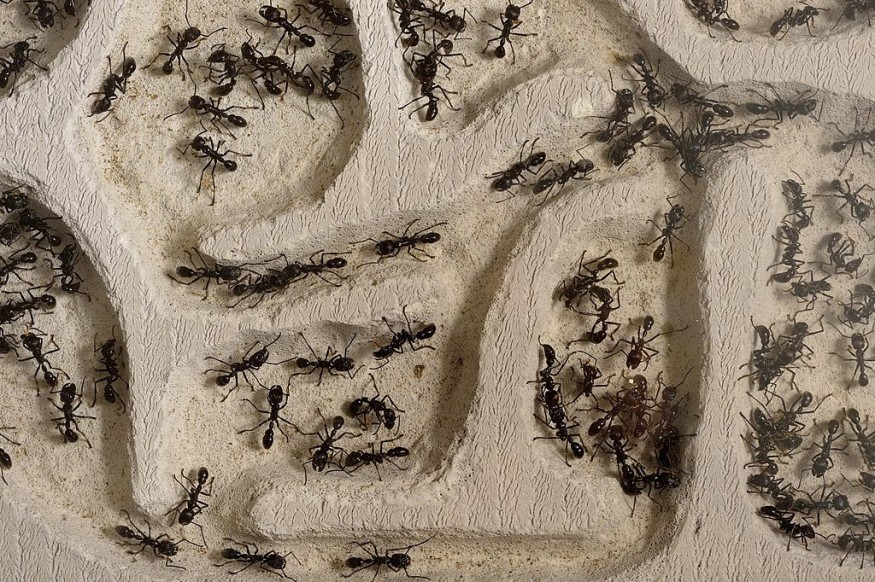According to new research, ants may assist farmers in growing food more successfully than insecticides.
The first thorough examination of ants' contributions to crop production revealed that they are more effective at eliminating pests, decreasing plant damage, and raising crop yields.

Looking at Ants
Ants are omnivorous predators that target pests that destroy fruits, seeds, and leaves, reducing crop production, according to the National Geographic.
The study discovered that a greater diversity of ants generally offers more defense against a wider range of pests, as coted by The Guardian.
The study examined 17 crops from the US, Australia, the UK, and Brazil, as well as citrus, mango, apples, and soy beans. "In general, ants can be effective pest controllers and gradually boost agricultural productivity with good management."
According to research published in Proceedings of Royal Society B, some ant species have efficiency comparable to or greater than pesticides, but at a lower cost.
Researchers in Brazil have discovered that ants thrive in various farming systems, such as agroforestry and crops grown in the shade.
"Our study advises farmers to utilize more sustainable techniques such as biological management given by ants and practices of shaded crops as a strategy to promote ants in crop systems naturally," stated author Dr. Diego Anjos of the Federal University of Uberlândia.
Managing Ants

Because they can potentially be a problem, it's unclear exactly what ants do in agriculture.
Pests like mealybugs and aphids are more prevalent when ants are present.
Ants "farm" aphids and guard them against predators in exchange for honeydew.
According to researchers, this association can be broken by using eco-friendly management techniques, such as giving an alternative source of sugars (on the ground, close to a tree's trunk or branches).
The ants are diverted, allowing them to continue eradicating other pests like beetles and caterpillars that don't create honeydew.
With 30 species examined over 52 research, the paper examined the majority of bug species regarded as pests globally.
The information, which strongly suggested that ants were responsible for the observed changes, was gathered via experiments comparing groups of plants with ants to plants where the ants were eliminated (either manually or chemically).
According to a study in Nature, ants in the Pacific island nation of Fiji can grow at least six different plant species as part of a 3 million-year-old mutually beneficial relationship.
Scientific Sentiments
Although he was not engaged in the study, Dr. Patrick Milligan of the University of Nevada Pringle Lab described the results as "both uplifting and not at all surprising."
They provided a clear and concise explanation of the numerous advantages gained from ant-derived products in ecological and agricultural systems, he continued.
This new weapon in our toolbox for farming can help farmers avoid using pesticides, which seriously harm nearby insect communities while increasing crop yields.
Professor Adam Hart of the University of Gloucestershire confirmed the significant function ants play as pest controllers.
Many of us have been mentioning ants as organic pest control agents. But as we start looking more, as with anything, it is typically more complicated than we initially imagined.
Natural and Sustainable

Ant colonies and other measures to promote the presence of ants may be financially advantageous to farmers.
However, we need to be cautious - it isn't all ants or all crop systems, and they can have a cost.
It all comes down to better knowing how ants interact with other creatures and agricultural pests.
Related Article : Scientists Looking for Ways to Grow Food Crops Without Photosynthesis
For more news update about alternative lifestyle and the environment, don't forget to follow Nature World News
© 2025 NatureWorldNews.com All rights reserved. Do not reproduce without permission.





